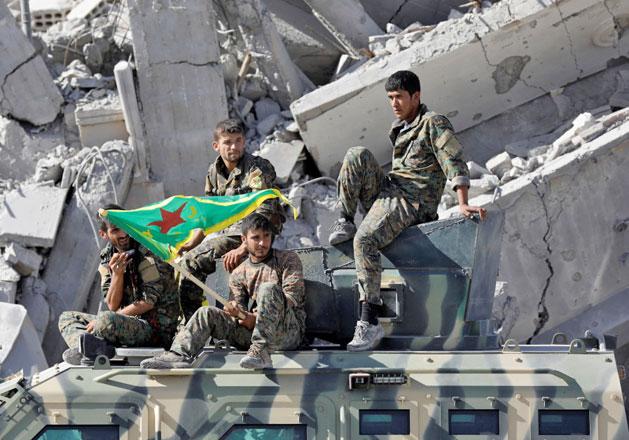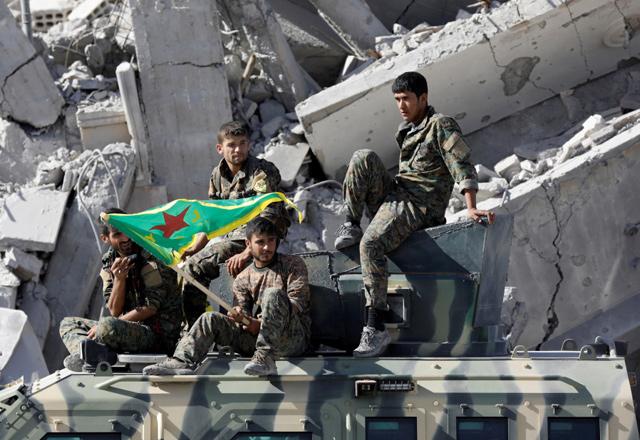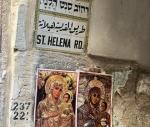You are here
HRW urges help for Syrians excavating Raqqa mass graves
By AFP - Jul 03,2018 - Last updated at Jul 03,2018

Fighters of Syrian Democratic Forces ride atop an armoured vehicle after Raqqa was liberated from Daesh militants in Raqqa, Syria (Reuters photo)
BEIRUT, Lebanon — Human Rights Watch (HRW) on Tuesday urged the international community to support Syrians excavating mass graves in Raqqa after US-backed fighters ousted militants from the city.
Fighters backed by US-led coalition air strikes expelled the Daesh militant group from the city in October, leaving the Raqqa City Council to run it.
The New York-based group said council workers with little specialised equipment or experience in forensic analysis were struggling to tackle the mammoth mission of exhuming the dead.
“Raqqa city has at least nine mass graves, each one estimated to have dozens, if not hundreds, of bodies, making exhumations a monumental task,” said HRW’s Priyanka Motaparthy.
“Without the right technical assistance, these exhumations may not provide families with the answers they have been waiting for and could damage or destroy evidence crucial to future justice efforts.”
Daesh extremists carried out public executions and detained thousands of people during their rule of the city from June 2014 to October 2017.
But local authorities estimate thousands of people were also killed in the battle to retake the city, either buried quickly or left under the rubble.
HRW urged the international community, including the United States, and international organisations to support local authorities in their task.
“International organisations with forensic expertise should provide technical support, including by sending in forensic experts,” it said.
Authorities should set up a civilian authority to liaise with the families of the missing, and create a digital database including photographs of those exhumed, HRW said.
“Identifying missing people and preserving evidence for possible prosecutions will have implications for justice in Syria as a whole,” the rights group said.
Last month, the Syrian team finished uncovering 553 bodies from the first of these mass graves in a football pitch near the city’s central hospital, it said.
The team — made up mostly of volunteers — then reburied them after logging information such as hair colour, clothes and shoes, as well as any identifying marks on their bodies.
They said they believed they found the remains of air strike victims, Daesh fighters recognised by their clothes and perhaps patients of the nearby hospital, HRW said.
But, it said, “the team needs far more training and technical assistance in order to exhume the bodies and collect data without losing information crucial to identifying them.”
In April, an AFP correspondent visited the site of the mass grass in the football pitch and saw a young man step over blue body bags searching for his brother.
Workers wearing white surgical masks and plastic gloves had retrieved around 60 bodies in a week since the grave was discovered, jotting down identifying details on a notebook.
Ten of those remains had been recognised by relatives.
Related Articles
BEIRUT, Lebanon — Human Rights Watch (HRW) on Tuesday urged the international community to support Syrians excavating mass graves in Raqqa a
BEIRUT — Two hundred corpses, including those of people believed to have been executed by the Daesh group, were found near the Syrian c
TARHUNA, Libya — "They spared no child, no woman, no old man," said Mohamed Amer, mourning those murdered during a reign of terror by six br

















